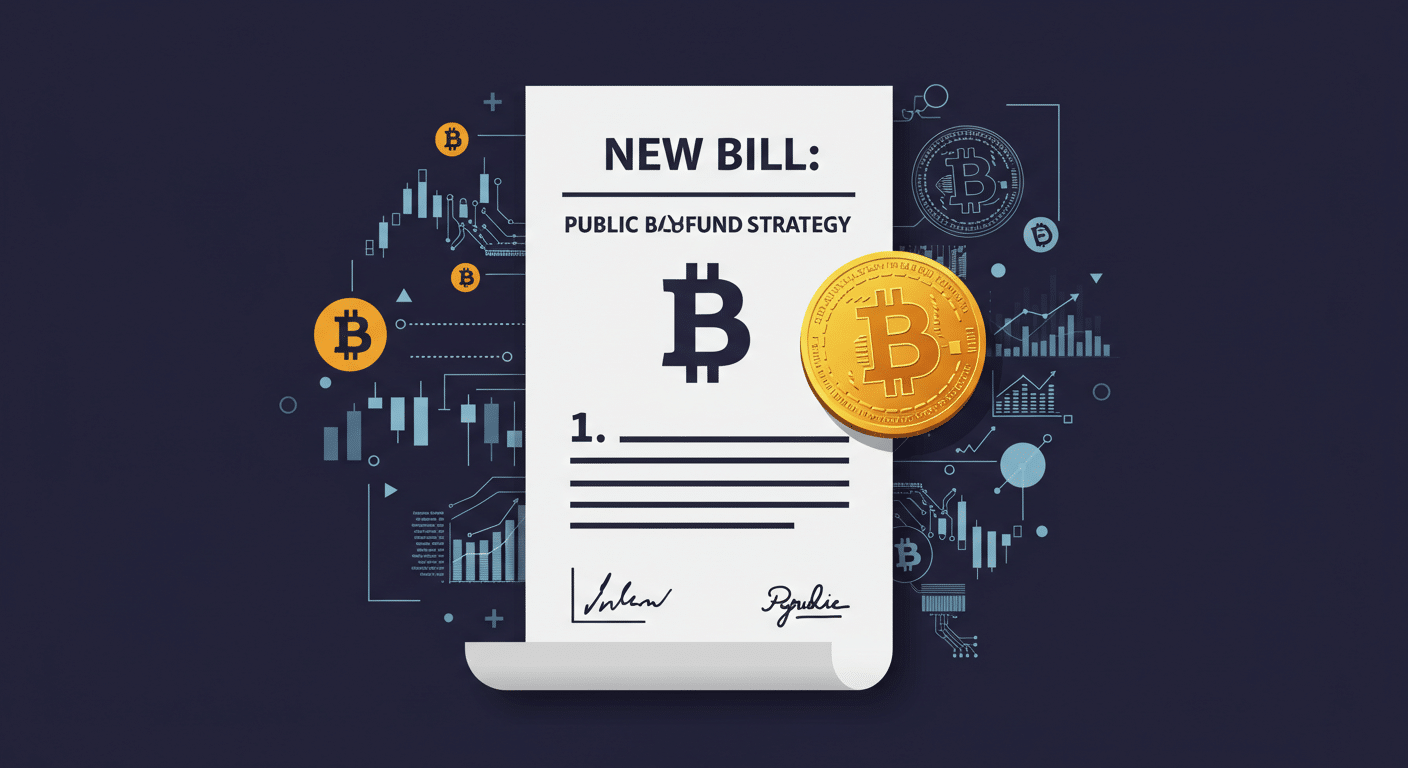North Carolina’s House of Representatives approved a bill enabling the state to invest in digital assets, including Bitcoin. The move marks a significant shift toward integrating cryptocurrency into public finance systems, particularly the state’s $127 billion pension fund. The bill now awaits further discussion in the Senate, where it must pass additional legislative steps before becoming law.
- North Carolina Moves Forward With Crypto Bill
- New Bill Pushes Public Bitcoin Fund Strategy
- Crypto Legislation Gains Ground Across States
- FAQs
- What is the purpose of the Digital Assets Investment Act?
- How much of the pension fund can be invested in digital assets?
- What does SB 327 propose regarding Bitcoin?
- Are other states taking similar steps?
- What risks are associated with digital asset investments?
- Glossary of Key Terms
North Carolina Moves Forward With Crypto Bill
The House of Representatives adopted the digital investment bill HB92 following several committee changes since its initial presentation on February 10. National legislators passed bill HB92, which allows the State Treasurer to investigate potential investment opportunities using valid digital assets. The bill’s latest version restricts funds to using digital assets for not more than 5% of their total assets, while the original version allowed for 10%.

The bill assigns multiple duties to the Treasurer’s office, including creating rules, risk evaluation, and providing recommended financial frameworks. According to this measure’s requirements, public employees need educational resources about digital asset benefits and risks. Public investment strategies will integrate digital assets through these stipulations to achieve responsible adoption.
System operators must study whether Wyoming should establish a state-run digital asset reserve to handle confiscated property. The State Bureau of Investigation will oversee the reserve, which will be administered through this proposal. Law enforcement would jointly manage these resources to ensure proper security.
New Bill Pushes Public Bitcoin Fund Strategy
Senate Bill 327, known as the Bitcoin Reserve and Investment Act, was filed on March 19 and has passed its first reading. This separate proposal would authorize allocating up to 10% of public funds to Bitcoin investments. The bill allows activities such as staking, lending, and yield generation using Bitcoin assets.

Three members of the Republican Party, Todd Johnson, Brad Overcash, and Timothy Moffitt, served as sponsors for the legislation. The suggested reserve dual functions as an investment that preserves monetary worth and safeguards against price fluctuations and foreign exchange instabilities. This proposed measure would emerge as one of the strongest state-level cryptocurrency investment plans among national statistics.
The bill will proceed to be studied by a Senate committee through extensive examination and debate. The updates to the bill will occur before the complete voting process begins. Multiple readings of the proposed legislation are necessary before the state Senate can approve it.
Crypto Legislation Gains Ground Across States
North Carolina leads a nationwide trend since multiple other states have written new legislation to regulate digital asset integration. Arizona, New Hampshire, and Texas have all introduced legislation to build Bitcoin reserves or enable crypto investment. Massachusetts and other states have demonstrated rising interest in using digital assets for financial strategies during this period.
At least twelve statehouses across the nation are reviewing legislation relating to digital assets in pension systems and public funds. The legislatures of Indiana and Florida are evaluating the potential inclusion of digital assets in public retirement systems. Such proposed changes will transform state management strategies for long-term public investment funds.
Although several states have introduced similar legislation, the adoption process has proven uneven because some states have not enacted comparable laws. Legislative measures in Oklahoma, Montana, and Wyoming became stalled because of public rejection and legislative resistance. The failure of certain proposals indicates the intense opposition to implementing crypto within systems that fall under public control.
FAQs
What is the purpose of the Digital Assets Investment Act?
The act allows North Carolina’s Treasurer to invest public funds in digital assets, focusing on cautious, limited exposure.
How much of the pension fund can be invested in digital assets?
HB92 caps digital asset investments at 5% of any fund’s total value to reduce risk.
What does SB 327 propose regarding Bitcoin?
It proposes a 10% Bitcoin reserve and enables activities like staking, lending, and yield generation.
Are other states taking similar steps?
Multiple states are exploring crypto legislation, though not all efforts have succeeded.
What risks are associated with digital asset investments?
Volatility, regulatory uncertainty, and custodial concerns are key risks identified by lawmakers and financial experts.
Glossary of Key Terms
Digital Asset: A digital representation of value such as cryptocurrency, used in investment or transactions.
Bitcoin: A decentralized digital currency that operates without a central bank and uses blockchain technology.
Staking: A process of participating in a blockchain network by locking up crypto to support operations and earn rewards.
Yield Generation: Earning returns through activities like lending or staking within cryptocurrency ecosystems.
Pension Fund: A pool of money collected to pay retirement benefits to public sector employees.
HB92: A House bill authorizing North Carolina’s Treasury to invest in approved digital assets under controlled conditions.
SB 327: A Senate bill proposing a 10% allocation of public funds into Bitcoin to build a strategic reserve.



















































































































